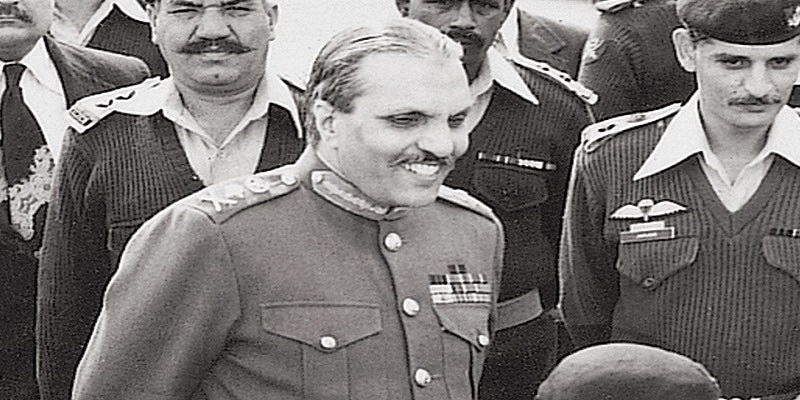General Zia-ul-Haq's Islamization Legacy in Pakistan (1977-1988)
The Islamization process under the leadership of General Muhammad Zia-ul-Haq, who ruled Pakistan from 1977 to 1988, marked a significant period in the country's history. Zia's regime sought to transform Pakistan into a more Islamic state, both politically and socially. This ambitious undertaking had profound implications for the country's legal system, educational institutions, and societal norms.
Zia-ul-Haq assumed power through a military coup in 1977, overthrowing the elected government of Prime Minister Zulfikar Ali Bhutto. The new regime justified its actions by claiming a need to restore law and order, curb corruption, and uphold Islamic values. Zia's vision for Pakistan was deeply rooted in his conservative interpretation of Islam, and he aimed to align the state more closely with Islamic principles.
One of the first steps in Zia's Islamization process was the introduction of the Hudood Ordinances in 1979. These ordinances, derived from Islamic Sharia law, dealt with offenses such as theft, adultery, and false accusations of adultery. They included punishments like flogging and amputation, drawing criticism from human rights activists who argued that they were draconian and discriminatory, especially against women.
The Zina and Qazf ordinances under the Hudood laws, which dealt with extramarital sex and false accusations of adultery, faced particular scrutiny. Critics argued that these laws disproportionately targeted women, as they required strict evidentiary standards for proving rape and often resulted in the punishment of victims rather than perpetrators. The Hudood Ordinances raised concerns about the erosion of women's rights and the potential for miscarriages of justice.
Zia's government also took steps to Islamize the educational system. The Islamization of textbooks and curricula aimed to infuse Islamic teachings into all levels of education. The content of school textbooks was revised to emphasize Islamic history, values, and principles. While proponents saw this as an effort to create a more religiously aware and morally grounded society, critics argued that it led to a narrow and ideological interpretation of Islam, neglecting the diversity within the religion.
Furthermore, Zia promoted the teaching of the Arabic language and Quranic studies in schools and universities, reflecting his commitment to fostering a more religiously literate population. While these measures aimed to strengthen Islamic identity, they also faced opposition from those advocating for a more secular and pluralistic educational system.
Zia-ul-Haq's government took several steps to promote Islamic banking and finance as part of its broader Islamization agenda. The establishment of Islamic banks and the introduction of interest-free financial products were intended to align the economic system with Islamic principles, particularly the prohibition of usury (riba). This move aimed to create a financial system that adhered to Sharia law and catered to the religious sentiments of the population.
In addition to domestic policies, Zia pursued an Islamization agenda in the realm of foreign policy as well. His government sought to position Pakistan as a leader of the Islamic world, advocating for Islamic solidarity and cooperation. This was particularly evident in Pakistan's support for the Afghan mujahideen during the Soviet-Afghan War, framing the conflict as a jihad (holy war) against the atheist Soviet Union.
Zia-ul-Haq's Islamization policies had a lasting impact on Pakistan's sociopolitical landscape. While some segments of society embraced the emphasis on Islamic values, others criticized the measures as a form of authoritarian rule that curtailed individual freedoms and marginalized certain religious and ethnic minorities. The legacy of Zia's Islamization continues to influence debates about the role of religion in the public sphere and the balance between Islamic principles and democratic governance in Pakistan.

